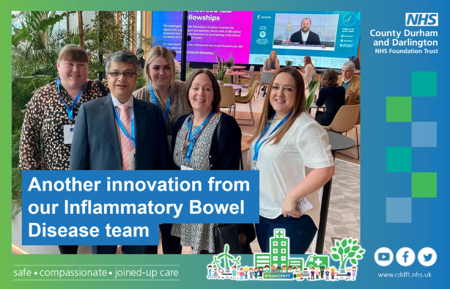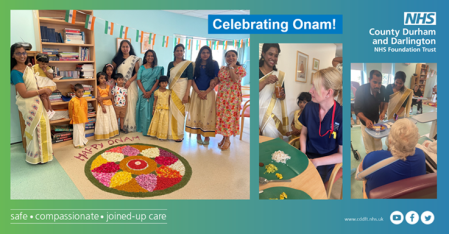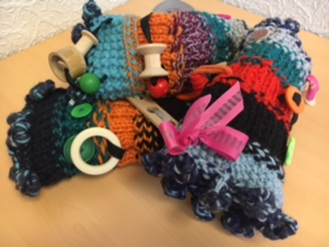
Traditionally patients needed to come to hospital to receive their medications which was given to them intravenously on the Medical Day Unit.
Because of the restrictions on attending hospital during the pandemic the team developed a way to switch patients to be able to self-injected biologic medications in their own homes. This project was supported by a partnership with industry colleagues and with homecare agreements being developed through our Pharmacy Department – and huge thanks go to all of them for their enthusiasm.
Over the last three years approximately 50 patients switched have switched to home administrated biologics and this has been well accepted by the patients. Switching patient to the new self administered biologic medications has resulted in fewer hospital attendances, reduced travel for for patients to get their medications and freed up available time slots in the medical day unit which can be used for cancer chemotherapy.
Celebrating Onan
Staff and patients on the Starling ward at The Richardson Community Hospital in Barnard Castle, celebrated Onam last week. Onam is an ancient Hindu festival of Kerala that celebrates rice harvest.
They enjoyed sharing Onam traditions with international colleagues, who came in wearing traditional clothing, cooking lovely traditional foods, which were served on banana leaves and making the beautiful flower display for all to share!

Donations for twiddle muffs
A message from Janet Mortimer, Lead Nurse in dementia and delirium:
"People with dementia often have restless hands and like to have something to keep their hands occupied. ‘Twiddle muffs’ are knitted muffs with items attached, like strands of textured ribbons, beads and various fabrics - attached both inside and outside. They help dementia patients to keep their hands active and busy and provide a source of visual, tactile and sensory stimulation, as well as keeping hands snug and warm.
"Please keep donating wool, ribbons, buttons, zips and twiddle muffs that have already been knitted as we constantly need to replenish our supply. Each muff is gifted to a patient, the emergency department, recovery rooms and all the adult wards across our trust request and use these wonderful creations.
"A very big thank you to everyone who has donated, the joy and comfort you give cannot be measured, both colleagues and patients love the twiddle muffs."

